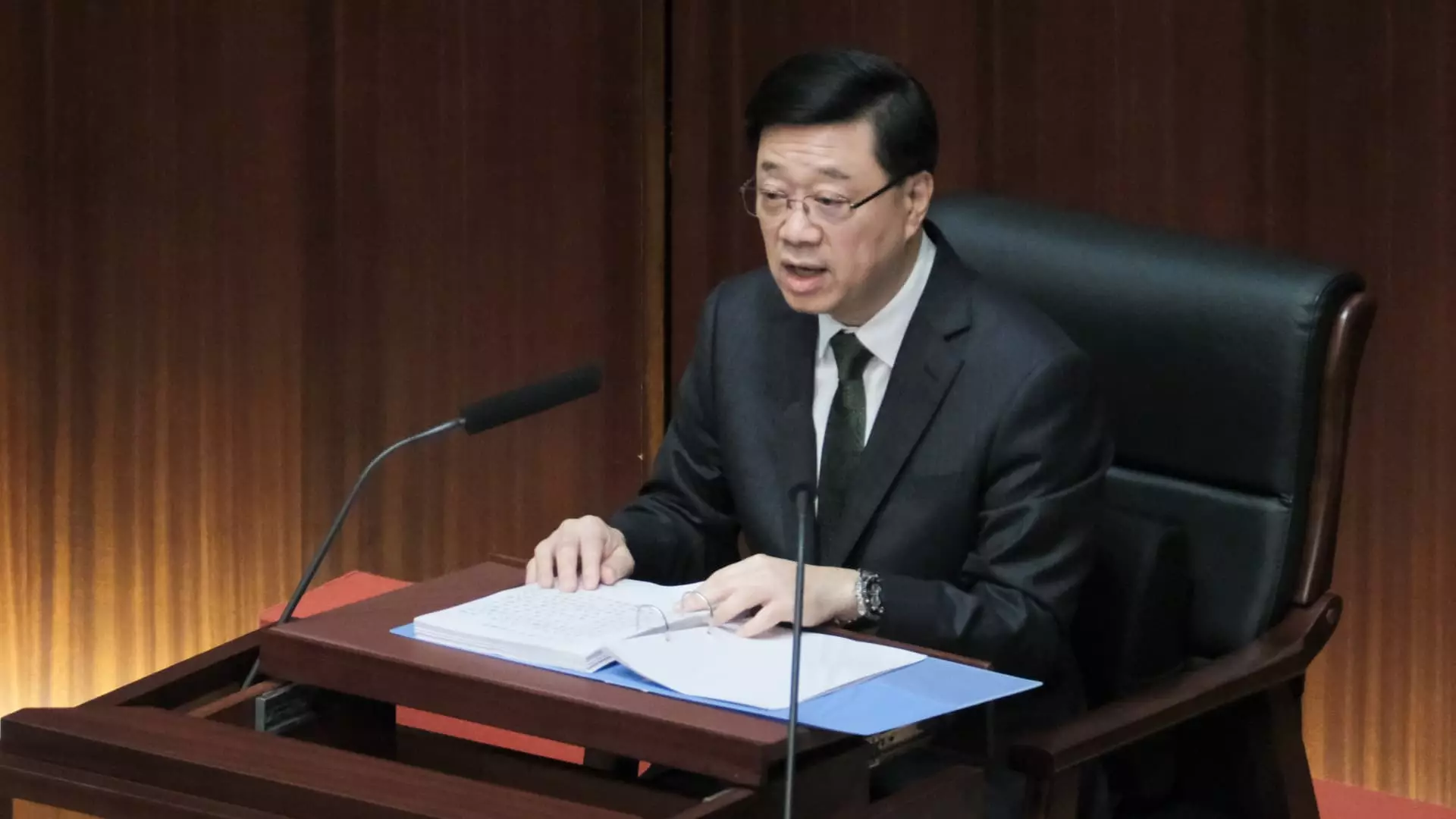Hong Kong, renowned for its vibrant culture and economic dynamism, finds itself in the throes of a severe housing affordability crisis. This pressing issue has been recognized by Chief Executive John Lee, who recently presented his annual policy address to the citizens. Described as “an issue of great public concern,” the affordable housing crisis is particularly daunting for young individuals under the age of 40, who are struggling to make a mark in the city’s highly competitive and crowded housing market. Lee’s strategies aim to ease this burden, and they delineate a clear acknowledgement of the challenges that many residents face.
One of the most prominent announcements from Lee’s speech is a plan designed specifically for younger applicants seeking subsidized housing. By introducing an additional ballot number for those under 40, the government incrementally enhances their chances of acquiring a place under the Home Ownership Scheme. This initiative particularly highlights the urgency of supporting a demographic that may feel cornered by sky-high property prices. Past reports indicate a concerning trend where some young people are reportedly rejecting promotions and pay raises to remain eligible for public housing, underscoring the extent to which this crisis impacts life choices.
Additionally, the government has decided to raise the quota for the “White Form Secondary Market Scheme” by 1,500 units exclusively for younger applicants. This scheme allows secondhand subsidized homes to be bought without incurring a land premium, thus providing a more user-friendly access point to the housing market. Given that only 4,500 households qualified for such flats earlier this year, this increment is a breath of fresh air for many who are grappling with the reality of extremely limited options.
While access to affordable housing is crucial, the quality of living conditions is equally important. The Hong Kong government continues to confront the troubling phenomenon of “shoe-box sized” subdivided units that the Demographia report has associated with dire health and safety issues. Lee announced intentions to roll out a new rental system targeting substandard apartments. Under the proposed guidelines, these units could be upgraded to “Basic Housing Units,” necessitating fundamental improvements such as the installation of proper windows, toilets, and ensuring that residences exceed an area of 86 square feet. This move signifies an acknowledgment that simply providing affordable housing isn’t enough; the quality of these living environments must improve to enhance residents’ quality of life.
As the government seeks to address immediate concerns surrounding housing, it also presents a longer-term vision. Lee predicts the completion of approximately 9,500 public housing units throughout the coming year, with strategic plans aimed at achieving a goal of approximately 30,000 units by 2027-2028. This ambitious target could gradually diminish the existing wait time for public housing, which currently stands at a troubling 5.5 years. If Lee’s projections hold true, the projected wait time could be curtailed to 4.5 years by 2026-2027, a significant improvement that could alleviate anxiety for many families.
This recent policy address underscored a shift in focus for Chief Executive John Lee, who, as observed, is now channeling his efforts towards enhancing residents’ livelihoods and fortifying the economy. His previous addresses primarily dwelled upon national security and the need for post-pandemic recovery. Post-civil unrest and the echoes of the pandemic still linger; however, this latest address reveals a conscious pivot towards tangible improvements in everyday life for ordinary residents.
While Hong Kong continues to grapple with an intensely competitive housing landscape, Chief Executive John Lee’s proposed measures reflect a proactive approach aimed at leveling the playing field for the city’s youth. The complexities of this crisis are undeniable, yet by integrating both immediate relief and long-term strategies, there is a potential path forward for those yearning for a home in one of the world’s most alluring destinations. Achieving a balance between affordability, accessibility, and quality of living is crucial for the overall well-being of Hong Kong’s residents.

